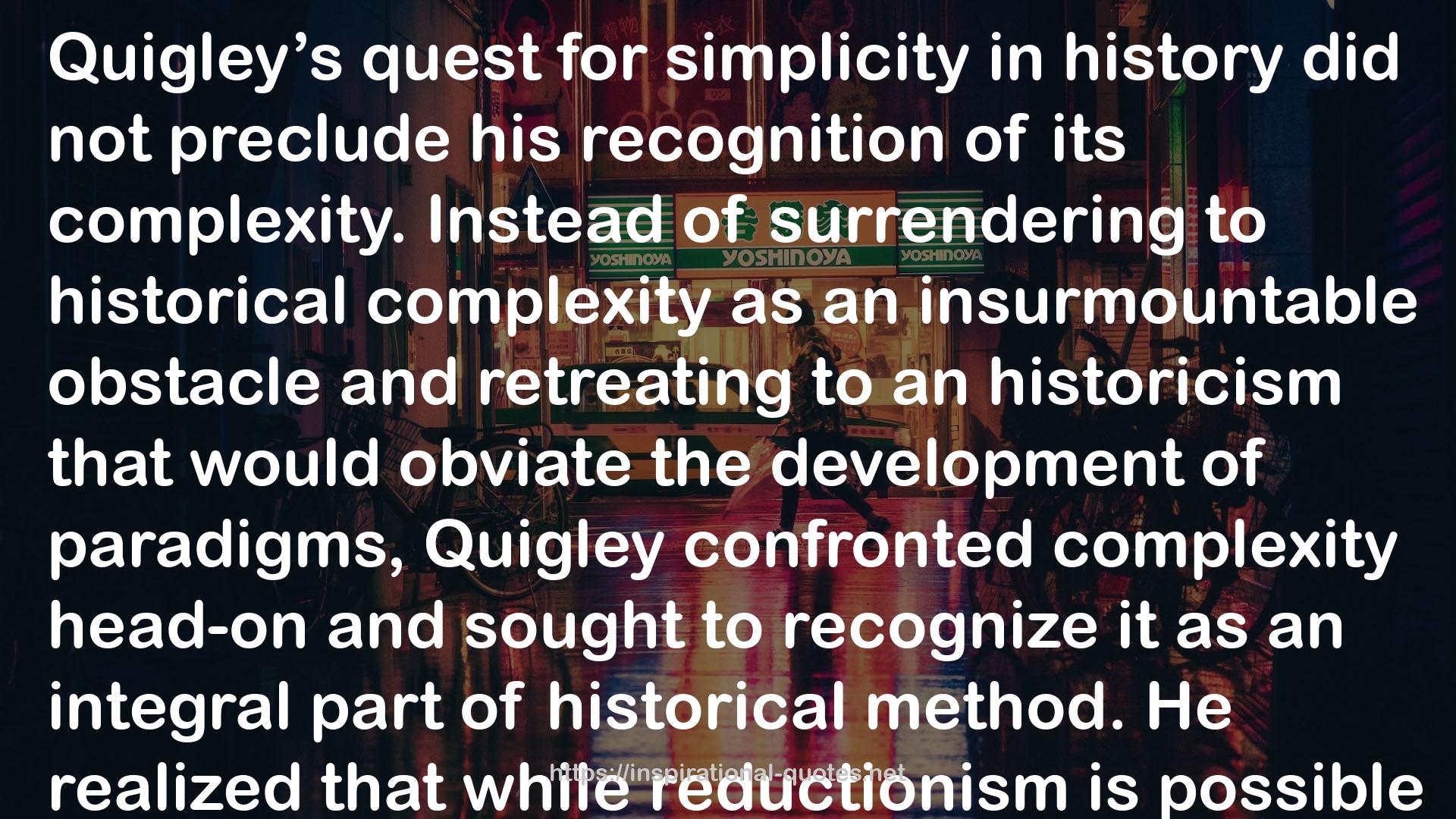" Quigley’s quest for simplicity in history did not preclude his recognition of its complexity. Instead of surrendering to historical complexity as an insurmountable obstacle and retreating to an historicism that would obviate the development of paradigms, Quigley confronted complexity head-on and sought to recognize it as an integral part of historical method. He realized that while reductionism is possible with the physical sciences, any such attempt at dissecting an historical phenomena and isolating and analyzing only one factor as an independent variable is impossible in the social sciences. Thus, Quigley studied the whole context of a phenomena, a method developed by the theoretical biologist Ludwig von Bertalanffy termed “general systems theory” 10 This “generalism” became known as “holisticism” and operationalized as “macrohistory.” By “holisticism”, Quigley meant that the “whole” of reality held greater meaning than the sum of its parts, thus scholars should tend towards general studies to understand general and comparative historical concepts and paradigms rather than the hyperspecialization pervading the discipline of history.11 "
― Carroll Quigley , Carroll Quigley: Life, Lectures and Collected Writings
